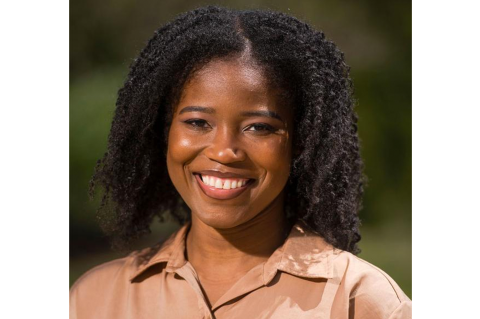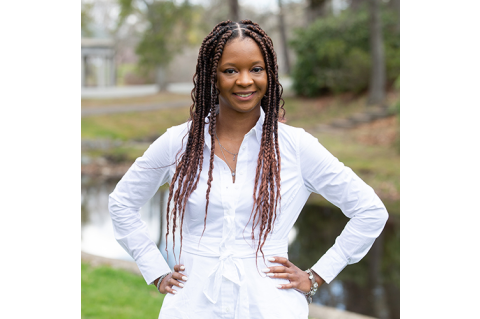Child Study and Human Development
Spring: n/a
Summer: n/a
Overview
The Eliot-Pearson Department of Child Study and Human Development's Doctoral Program offers small class sizes; a personalized path of study; mentorship from professors at the top of their fields; collaborative, cross-discipline research opportunities; exclusive internship opportunities; and a learning framework that emphasizes research, practice, and integration. As a student in this program, you will gain the foundational skills and knowledge to make an impact in the lives of children and their families.
Program Outcomes
PhD candidates in the Child Studies and Human Development Department work closely with a primary mentor and are supported by a community of scholars in various ways. Through a rigorous combination of research, training, coursework, and internships, students develop substantive expertise in one area of scholarship. In addition, they develop competencies in ten other areas, including foundational knowledge of the field, methods and statistics, research, professionalism, grantsmanship, publication, applied work, dissemination, cultural processes, teaching, and mentoring.
The doctoral program in Child Study and Human Development prepares students to make important contributions to theory, research, policy, and practice in diverse settings. Alumni of Eliot-Pearson's doctoral program have gone on to work in a variety of settings, including:
- Academia
- Children's media
- Technology for children
- Toy companies
- Learning environments
- Congressional policy fellowships
- Early childhood education
- Secondary and higher education administration
- International early childhood consultation
- International NGOs (e.g., UNICEF, World Bank)
- Research firms and organizations
Application Requirements
- Application fee
- Resume/CV
- Personal statement
- Official TOEFL, IELTS, or Duolingo English Test scores, if applicable
- A minimum score of 95 on the Internet-based TOEFL is generally considered evidence of sufficient English language ability for graduate study. Minimum equivalent scores of 7 on the IELTS and 115 on the Duolingo exam are also considered indication of sufficient ability.
- Transcripts
- Three letters of recommendation
- A supplemental essay (maximum 500 words) that answers the prompt: "How do differences in cultural and/or contextual processes impact theory, research, or practice in your area of scholarly interest?"
The Child Study and Human Development's admissions process looks at each student as an individual, and reviews applications for strengths and indications that the applicant will be successful in the program.
Final admissions decisions are based on whether a student's interests are a match for one of the faculty who has decided to admit a student for the upcoming year. Prior to applying, you should research the department's faculty members as well as the various departmental labs, research areas, and research projects to ensure the Child Student and Human Development PhD aligns with your interest areas and goals. Please note that the only faculty members who can supervisor doctoral students are Assistant Professors, Associate Professors, or Professors. Other faculty (including Full-Time Lecturers, Senior Lecturers, Research Assistant Professors, Research Associate Professors, Affiliated Faculty) are not able to supervise doctoral students.
Tuition and Financial Aid
See Tuition and Financial Aid information for GSAS Programs.
Student and Alumni Spotlights
Creating Healthy Communities
Career Outcomes
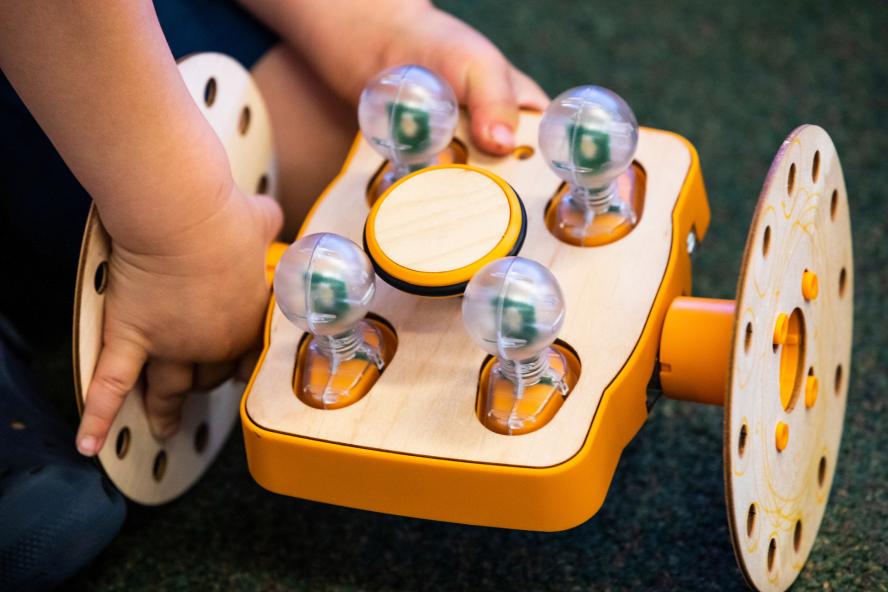
Average Salary: $70K - $110K
Average Age: 28
*Sources: GSAS-SOE Graduate Exit Survey 2020 - 2021 and Academic Analytics (Alumni Insights)
Faculty
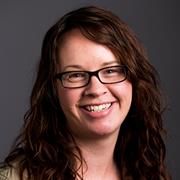
Sara Johnson

Sara Johnson
Research/Areas of Interest: Adolescence and young adulthood; identity development; civic development and engagement; youth contribution; critical consciousness; quantitative methods (including mixture models such as latent class and latent profile analyses); positive youth development
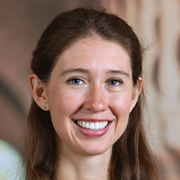
Emma Armstrong-Carter

Emma Armstrong-Carter
Research/Areas of Interest: child development; research practice partnerships; prosocial development; children's caregiving for family; school policies educational success

Mary Casey

Mary Casey
Research/Areas of Interest: Parent-child relations
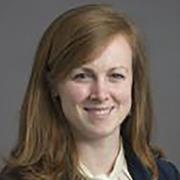
Eileen Crehan

Eileen Crehan
Research/Areas of Interest: Neurodevelopmental disorders; autism spectrum disorder; sexuality education; social perception; eye tracking; dimensional measurement of psychological symptoms
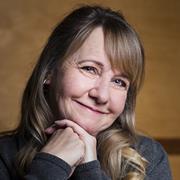
Julie Dobrow

Julie Dobrow
Research/Areas of Interest: Children and media; ethnicity/gender and media; adolescents and media use; women's history and biography I am currently working on a three-tiered interdisciplinary research project along with Chip Gidney, Mary Casey, and Cynthia Smith at Eliot-Pearson, as well as faculty in several other departments at Tufts. The first piece of this project is a long-running content analysis of children's animated programming. We are updating prior work we've done that investigates images of race, ethnicity and gender in children's animated programming using both content and sociolinguistic analysis. The second part of this research is an exploration of why stereotyping persists in children's media. We are examining this through intensive interviews with content creators, writers, directors, vocal casting directors, and actors. The third part of the project is empirical research we're conducting with children, to see how children make sense of gender, race, and ethnicity in the animated programs they see. My applied work includes doing many media literacy workshops for parents and for children and for children in a variety of settings, and consulting work with colleagues at GBH, one of the leading creators of children's educational media. I have written about children and media issues in a variety of academic and popular venues. My other research is historical in nature. I serve as co-PI, along with Jennifer Burton, of the Half the History Project at Tufts, which utilizes short-form biography, film, and podcast to tell the untold and under-told stories of women's lives. I've written one biography of the relatively unknown mother/daughter team who made Emily Dickinson into one of the most-known women anywhere in the world. After Emily: Two Remarkable Women and the Legacy of America's Greatest Poet was published by WW Norton in 2018. My next dual biography, Love and Loss After Wounded Knee: A Biography of an Extraordinary Interracial Marriage, will be published by NYU Press in Fall 2025.
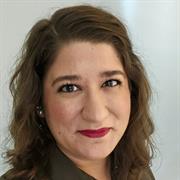
Simone Dufresne

Simone Dufresne
Research/Areas of Interest: neurodivergence, autism, social development, experience of higher education students, participatory research As a teaching faculty member, Simone is not actively conducting research. However, she does advise Master's and Senior Honors thesis students in their research.
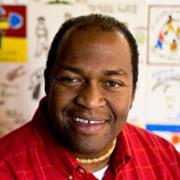
Calvin Gidney

Calvin Gidney
Research/Areas of Interest: Linguistics; literacy, sociolinguistic development; dyslexia in African-American children; language of children's cartoons; children's name-calling

Demond Hill

Demond Hill
Research/Areas of Interest: (Mental) Health Equity; Human Emotions and Behaviors; Belonging and Human Flourishing; Neighborhood and Built Environment; Racial and Structural Inequality; Complex Trauma, Anxiety, and Stress; Education; Social and Emotional Learning/Development; Program Development; Ethnography, Youth-and-Community Based Participatory Action Research; Qualitative Research
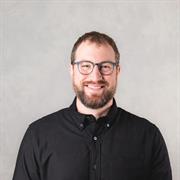
Jordan Jurinsky

Jordan Jurinsky
Research/Areas of Interest: recovery; addiction; substance use; adolescence and emerging adults; community engaged research; recovery high schools; health equity; social contexts
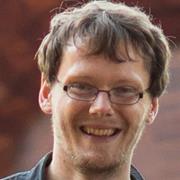
Theo Klimstra

Theo Klimstra
Research/Areas of Interest: Adolescence and young adulthood; identity development; personality development; narrative identity; quantitative methods (including structural equation models)
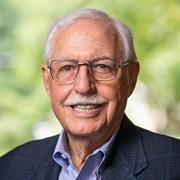
Richard Lerner

Richard Lerner
Research/Areas of Interest: The application of developmental science across the life span; developmental systems theory; personality and social development in adolescence; developmental methodology; programs and policies for children, youth, and families; university-community collaboration and outreach scholarship. Developmental Science
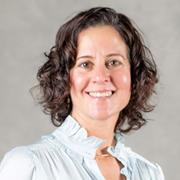
Tama Leventhal

Tama Leventhal
Research/Areas of Interest: Neighborhood and community context; housing context; family context; poverty and socioeconomic status; social policy; adolescence; immigrant young children
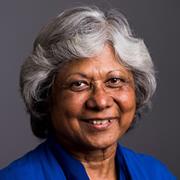
Jayanthi Mistry

Jayanthi Mistry
Research/Areas of Interest: Theoretical perspectives on the integration of culture and human development; Narratives of identity and place in communities; Navigating multiple cultural worlds, with a focus on ethnic minority, immigrant, and under-represented communities; Interpretive and Narrative Analysis methods in the study of children and families.
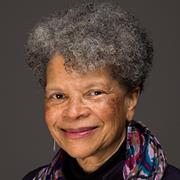
Ellen Pinderhughes

Ellen Pinderhughes
Research/Areas of Interest: Families and children in challenging circumstances; parenting and family functioning among diverse families; ethnic-racial socialization processes; cultural and contextual influences; child and youth outcomes; adoption and foster care
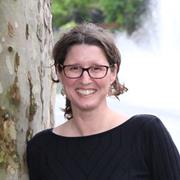
Christine McWayne

Christine McWayne
Research/Areas of Interest: Early childhood education, school success of young children at risk due to poverty, parenting and family-school partnerships in diverse ethnocultural communities, culturally inclusive STEM curriculum, community-based research collaborations.
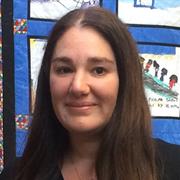
Kerri Modry-Mandell

Kerri Modry-Mandell
Research/Areas of Interest: Pediatric psychology; Developmental Psychopathology; Family Functioning and Adaptation to Pediatric Chronic Illness; Children's Sibling Relationships; Psychological Consultation and Collaboration and Therapeutic Space Design; Grief Support; Pediatric Health Promotion and Disease Prevention Developmental Initiatives
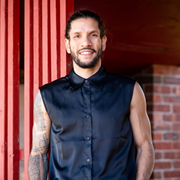
Fernando Salinas-Quiroz

Fernando Salinas-Quiroz
Research/Areas of Interest: My research centers trans and nonbinary children and youth, focusing on how they imagine, inhabit, and transform gender, family, and belonging. I work alongside young people to challenge the rigid binaries that limit their lives, and I see research as a space for co-creation, joy, and justice. Through transdisciplinary approaches, I seek to expand our understanding of change—not as a fixed "path of development," but as the complex, shifting, and plural ways children and communities grow. At the core, my scholarship asks how we can build worlds where trans and queer youth not only exist, but thrive.
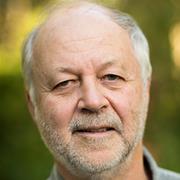
W. George Scarlett

W. George Scarlett
Research/Areas of Interest: Children's development as earth stewards, children's play, Approaches to children's challenging behaviors, religious and spiritual development across the lifespan, the arts in support of children's development.
